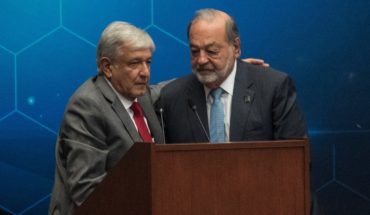What is the diagnosis that the FRVS brings to the conclave this Sunday?
From the political point of view, it was six months to forget. The government is just getting on track now, the cabinet change came a little late. However, we have made progress in very active ministries, Finance, Agriculture, Environment. The State has functioned thanks to the sectoral ministers who have been supporting the management of the Government. Now we hope that with a definition of objectives that will be more visible.
-What do you mean specifically that it was six months to forget?
The government relied mainly on the figure of the President of the Republic and his political team was not necessarily aligned with the effort that was placed only on his figure. This asset had to turn a lot of its political capital to sustain this political team that did not work. Therefore, in those six months that it was necessary to respond to the issues especially of security and public order, it was not done.
What changed after the new cabinet formation?
Now it is being channeled and we see that we have more powerful ministers who are carrying out a political agenda that allows the President not to carry all the burden that implies the responsibility of governing. You can fulfill your role, but not pay all the costs. There is a respite in relation to the fact that the configuration of the political committee has more clarity in its functions and objectives.
You say that the ministries have been supporting the management of the Government, however, within the official coalitions there are those who criticize that there has been a lack of communication of their progress.
I think this feeling has to do with the fact that the constituent conversation and the political contingency have eaten up a little the possibilities of showing the government. Because I see ministers constantly on the ground.
Another element is that in the hope of thinking that we were going to achieve all the progress to fulfill the government program, there is also a feeling that the effort is even and poor. But it is because we have not been able to prioritize government objectives. As the agenda has equivalent priorities, communication is diluted.
-How is it solved?
The first step in Cerro Castillo this Sunday is to define three strategic objectives and tasks that have to be met so that those goals can be more visible to the people.
-This Sunday in the conclave in the internal they say that there will be a struggle between mitigating the rhythm of the transformations of the program and respecting “the mandate of the polls” promoting the transformative stamp …
The program of transformations is not designed for a single government. We understand that it is progressive. When you generate a program is how you want to see your country, and the closer you get to fulfilling that vision, the greater your achievements. Regardless of the fact that we know that not all the objectives of the programme can be met, they remain valuable for the guidance they give to the Government.
Do you think that Democratic Socialism has put a pause in the rhythm of transformations?
I appreciate that the forces of Democratic Socialism have arrived to support the government program and its contribution. They bring experience of the management of the state apparatus and moderation to a sector that came with an intense yearning and an almost existential desire for many urgencies. I believe that the synthesis that is made of these two forces is the perfect balance, which is seen in the proposal of the Pension Reform. It reflects the commitment of Apruebo Dignidad to end the AFPs and start a path towards social security, the same desire as Democratic Socialism. But this second says eye, to fulfill this objective we can not insecure – less in the world economic context – the financial scheme of the country.
Nine days after the TPP-11 was approved and with the Government’s plan to ratify the treaty when the side letters, They set a year as a limit. Were you uncomfortable with the change in strategy?
The ruling parties can never fail to fulfill their role. It implies maintaining a certain level of coherence with the discourse, but you have to assume that sometimes you have defeats. The TPP-11 was a defeat for the progressive parties that were against it. But the government’s reach goes beyond its partisan boundaries. We fulfill the role of alerting about our position. The leaders have to fulfill a role of State and that goes beyond their very personal beliefs and preferences.
-Constituent process: “We must assume that the process has already passed, it is a warning voice to sincerely the positions of our own and others’ militants”
“I suspect that it will have a great cost in the militancy, especially of the most progressive parties. Having yielded to issues that were impossible to yield, “says the president of the FRVS about the progress of the agreements in the negotiations between parties to design a new constituent process.
In the last meeting, which was held last Friday, November 4, they advanced in the definition of a body that will function as an arbitrator so that those who draft the Constitution must respect the 12 bases or edges that they have agreed. With the name Technical Committee of Admissibility it would be a group of 14 people with a profile of jurists with outstanding professional and academic careers.
In an interview with El Mercurio on Wednesday, November 2, Torrealba said that “this constituent moment no longer exists, that the energy or the need to respond with a new Constitution as in 2019 was lost,” and that “initiatives of strategic support of the Government, such as security, tax, health and pension reform” must be resumed.
“Since 2019 when the agreement that gives rise to the constitutional process was signed, people have received zero welfare. We have not advanced in any direction that gives signals to the citizens that the problems that were evidenced during October 2019 are going to be solved, “he explains.
Do you think that your words relieved a sector of Apruebo Dignidad that they see that at this moment they would have to give too much with respect to the design to continue with a constituent process because they are at a disadvantage compared to Chile Vamos?
“I don’t know if it was a relief. But I think that the discussion that was opened by the approach of my party, at least made visible that there are other ways that we can explore to get out of this intrinsic that we have to resolve.
The opposition knows that 62% are not their own. They know that they have the same problem as the ruling party, that there is uncertainty about the electoral behavior of citizens. They understand that this issue needs to be resolved. And one way to do that, for example, is to force the people sitting on the deal to leave the table by placing such high demands on them that they are impossible to meet. So you take responsibility and say, ‘I did what I could, my counterpart didn’t deliver.’
-After his words in El Mercurio when he said that “this constituent moment no longer exists. On Friday, progress was made in the negotiations and it was reached that the arbitrator body will be a Technical Committee on Admissibility. How much do you think his knock on the table had to do with it?
-We must give a way out of this process. He is detained, the more days pass, the more dirty he gets and we lose the support of the citizenry. You have to assume that the process has passed.
We believe that the decision taken by this group is a sign that there is a willingness to move forward in these talks. But we still think it’s time to stop the process, regain the trust of the public, establish a new deal, and make people trust us again.
The only way to achieve this is for the political system to solve issues of people’s daily lives. This is why reaching an agreement on tax and pension reform is vital for people to trust the political system again.
Why did you say that the opposition has proposed such high demands that cannot be met? Guillermo Teillier, president of the PC, said on October 30 on Radio Mundo about the edges agreed until today in the negotiations that were a “advance with respect to what is the current Constitution”.
-The political parties were summoned to a constitutional agreement to establish the borders. Once installed, these edges became principles. Like ‘Chile is a republic’. But from principles we move on to constitutional agreements or norms.
We have twelve constitutional bases, which are practically a Constitution, that of the United States is one page. And, in addition, the guardianship of an organ. What should regulate that the principles are respected is the quorum. This is at most going to be a reform of the Constitution of ’80, or of President Lagos, but it is not a new Constitution in any way.
Specifically which of the bases do you think are problematic for the FRVS? The maintenance of the Senate, for example?
The last four governments have been in a minority in the National Congress. The Executive has no way to advance its government program. Therefore, one of the issues that the Constitutional Convention has to take charge of the political system and analyze it as a whole. How will it do so if the discussion in the constitutional bases is already closed?
What do you think about the Technical Committee on Admissibility?
-If you incorporate that element you are repeating the vices that have the origin of the Constitution of 80, which was written by a group of people far from citizenship, which also installed a Constitutional Court, not elected by the citizenship, to regulate controversies.
From Democratic Socialism there are those who say that after a defeat like the one they had on September 4 from the ruling party, their negotiating capacity is redefined. What do you think of this stance?
I believe that the failure of the progressive forces has nothing to do with the electoral result, but with the loss of strength and energy of the causes that we understood as a minimum floor to discuss the new process. Because when the constitutional text was rejected, it was understood that parity, regionalism, environmental protection, social rights were an achievement and a basis. They were assumed by the progressive sectors of the right.
The failure of the parties of progressivism has nothing to do with the result of the plebiscite, but with the fact that the more time passes, the questions that were understood as conquered are becoming weaker and weaker.
Follow us on





